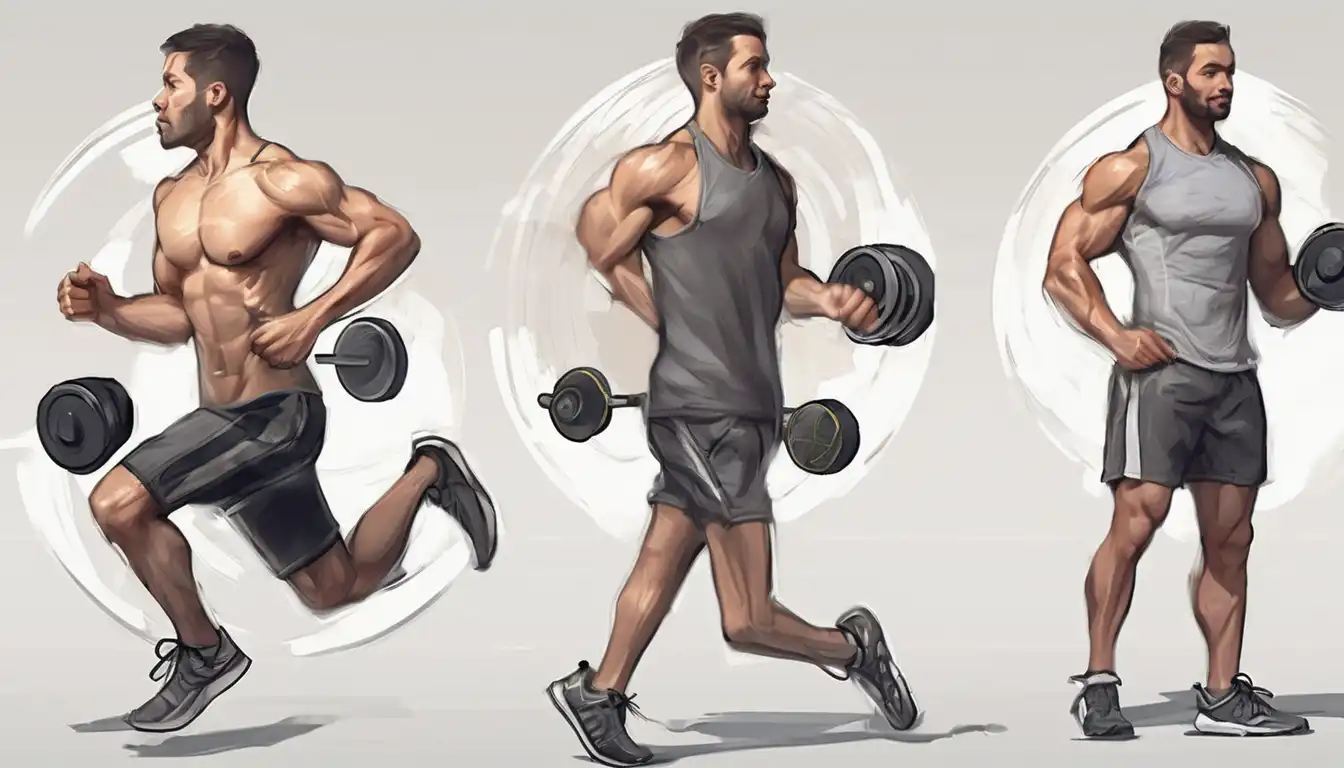Getting Started: Your Path to Fitness Success
Embarking on a fitness journey can feel overwhelming, but with the right approach, anyone can build a sustainable routine that delivers real results. Whether you're looking to lose weight, build strength, or simply improve your overall health, this comprehensive guide will walk you through every step of creating an effective fitness plan tailored to your needs and lifestyle.
Why Starting a Fitness Routine Matters
Regular exercise offers numerous benefits beyond physical appearance. Consistent physical activity improves cardiovascular health, boosts energy levels, reduces stress, and enhances mental clarity. According to the American Heart Association, just 150 minutes of moderate exercise per week can significantly reduce your risk of chronic diseases.
Assessing Your Current Fitness Level
Before diving into any workout program, it's crucial to evaluate where you're starting from. Consider these key factors:
- Medical clearance: Consult with your healthcare provider if you have pre-existing conditions
- Current activity level: Be honest about how active you are currently
- Fitness goals: Define what you want to achieve (weight loss, muscle gain, endurance)
- Time availability: Realistically assess how much time you can commit
Setting Realistic Fitness Goals
Effective goal-setting is the foundation of any successful fitness journey. Instead of vague aspirations like "get in shape," create SMART goals:
- Specific: "I want to lose 10 pounds in 3 months"
- Measurable: Track progress with metrics like weight, measurements, or workout performance
- Achievable: Set challenging but realistic targets
- Relevant: Ensure goals align with your personal values
- Time-bound: Establish clear deadlines for achievement
Choosing the Right Type of Exercise
A balanced fitness routine should include four key components:
Cardiovascular Exercise
Cardio workouts improve heart health and burn calories. Beginners should start with low-impact options like walking, cycling, or swimming. Aim for 20-30 minutes, 3-4 times per week, gradually increasing intensity as your fitness improves.
Strength Training
Building muscle boosts metabolism and supports joint health. Start with bodyweight exercises like squats, push-ups, and planks before progressing to weights. Our strength training guide offers detailed instructions for proper form.
Flexibility and Mobility
Stretching improves range of motion and reduces injury risk. Incorporate 5-10 minutes of stretching after each workout, focusing on major muscle groups.
Rest and Recovery
Muscles grow and repair during rest periods. Schedule at least one full rest day per week and ensure adequate sleep for optimal recovery.
Creating Your Weekly Workout Schedule
Consistency is more important than intensity when starting out. Here's a sample beginner schedule:
- Monday: 30-minute brisk walk + full-body stretching
- Tuesday: Strength training (upper body focus)
- Wednesday: Active recovery (light yoga or walking)
- Thursday: 25-minute cardio session
- Friday: Strength training (lower body focus)
- Saturday: Fun activity (hiking, dancing, sports)
- Sunday: Complete rest day
Essential Equipment for Beginners
You don't need an expensive gym membership to get started. Basic equipment includes:
- Comfortable athletic shoes with proper support
- Moisture-wicking clothing
- Exercise mat for floor work
- Water bottle for hydration
- Set of resistance bands or light dumbbells
Proper Form and Technique
Learning correct exercise form prevents injuries and ensures maximum effectiveness. Key principles include:
- Maintain neutral spine alignment during most exercises
- Engage your core muscles throughout movements
- Move through full range of motion without rushing
- Breathe consistently—exhale during exertion phases
Consider working with a certified personal trainer initially or using our exercise demonstration videos to learn proper techniques.
Nutrition for Fitness Success
Exercise and nutrition work together for optimal results. Focus on:
- Pre-workout fuel: Light snack 30-60 minutes before exercise
- Hydration: Drink water throughout the day, not just during workouts
- Post-workout recovery: Protein and carbohydrates within 2 hours after exercise
- Balanced diet: Emphasize whole foods, lean proteins, and complex carbohydrates
Staying Motivated and Overcoming Plateaus
Maintaining motivation is often the biggest challenge for beginners. Effective strategies include:
- Tracking progress with photos, measurements, or fitness apps
- Finding a workout buddy for accountability
- Mixing up routines to prevent boredom
- Celebrating small victories along the way
- Focusing on how exercise makes you feel, not just how you look
Common Beginner Mistakes to Avoid
Many newcomers make these errors that can derail progress:
- Doing too much too soon: Gradual progression prevents burnout and injury
- Comparing yourself to others: Everyone's fitness journey is unique
- Neglecting warm-ups and cool-downs: These are essential for injury prevention
- Ignoring pain signals: Learn the difference between muscle fatigue and injury pain
- Expecting immediate results: Fitness transformations take time and consistency
When to Seek Professional Guidance
While many beginners can start independently, consider consulting professionals if:
- You have specific health conditions or injuries
- You're unsure about proper exercise form
- You're not seeing progress after several weeks
- You need personalized programming for specific goals
Building Long-Term Fitness Habits
The ultimate goal is making fitness a sustainable part of your lifestyle. Remember that consistency beats perfection—showing up regularly, even for shorter workouts, creates lasting habits. As you progress, you can explore more advanced techniques and specialized training methods from our advanced workout library.
Starting a fitness routine is one of the most rewarding investments you can make in your health. By following these guidelines and listening to your body, you'll build a foundation for lifelong fitness success. Remember that every expert was once a beginner—your journey starts with that first step.
